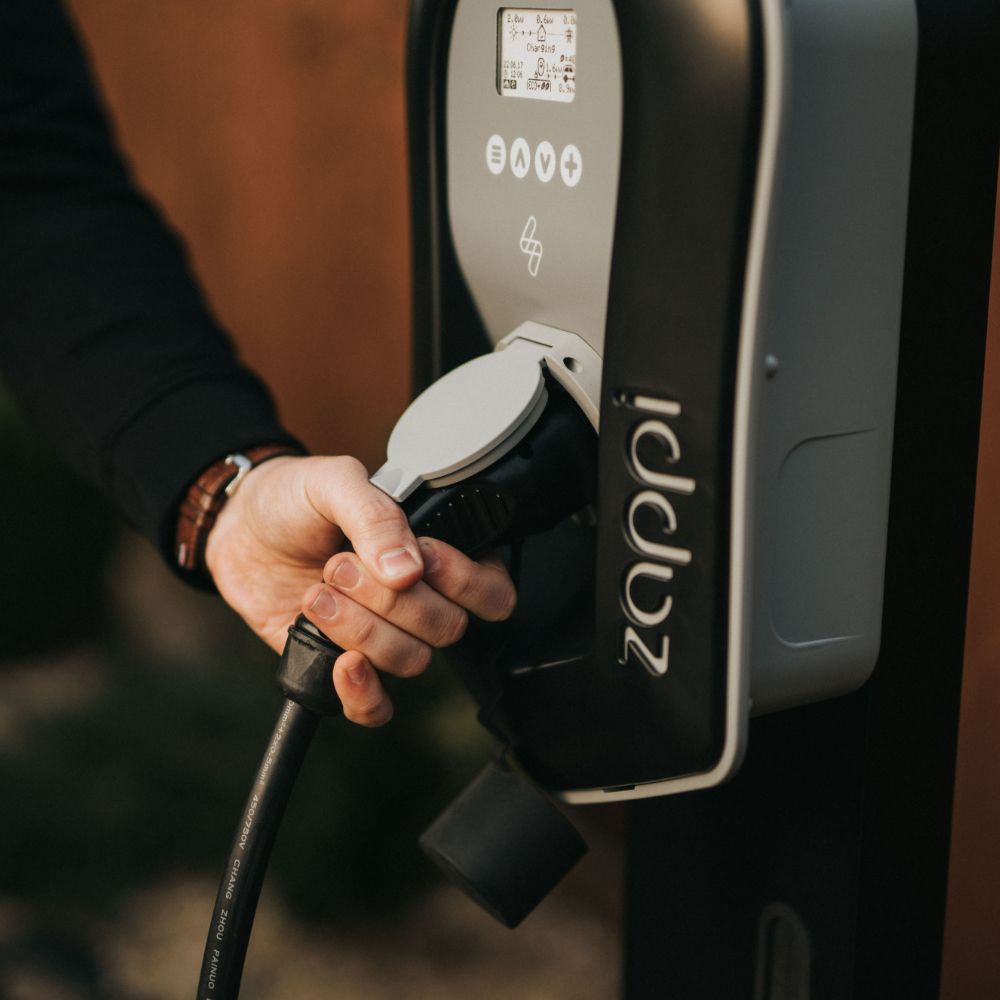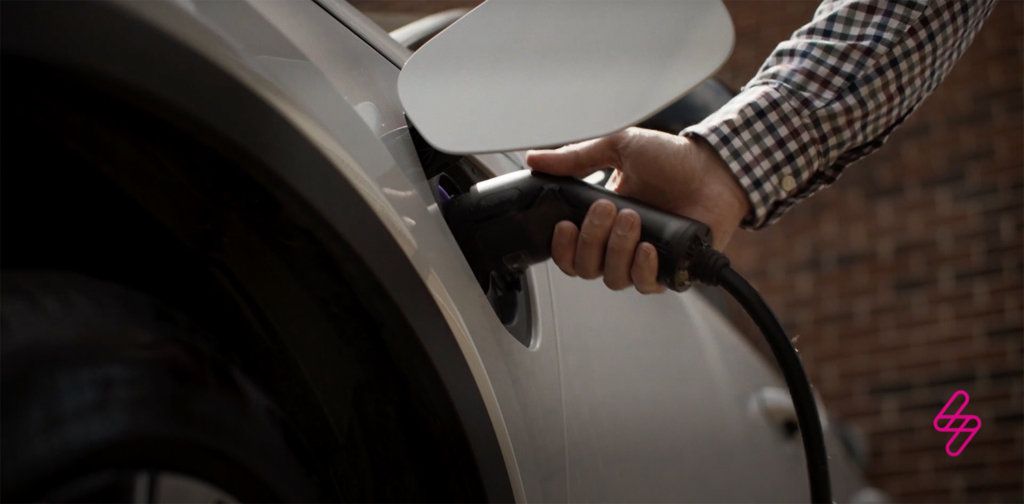With 2020 just around the corner, people are beginning to think of their new year’s resolutions for the next 12 months.
A new year presents the ideal opportunity to set goals and make positive changes in your life. It is our mission to make such changes to our planet with the help of renewable energy and sustainability.
There has never been as much focus on saving our planet from the doom and gloom of global warming and climate change than now. This means that 2020 is the perfect time to create new year’s resolutions centred around reducing your carbon footprint and living a greener life.
1) Make your bathroom plastic-free
The first thing we must all stop doing is treating bathroom waste as if it’s exempt from the recycling process.
Plastic shampoo bottles are more likely to end up in the general waste bin because a lot of people neglect to separate out their bathroom rubbish. Here are a few ways in which you can increase sustainability in your bathroom:
- Use environmentally friendly cleaning products: Brands such as method are non-toxic and contain as few chemicals as possible. They do a great job and have the benefit of smelling really nice!
- Buy biodegradable cotton buds and toothbrushes: Cotton buds tend to get flushed down the toilet, find their way to the ocean and do a huge amount of damage to the marine life that ingests them. Wooden toothbrushes are also available.
- Use bar soap rather than heavily packaged liquid soap: Ensure it doesn’t contain palm oil. You can also get plastic-free shampoo bars.
- Buy shampoos, shower gels etc in bulk: This reduces the overall amount of packaging, especially if you buy refillable products from companies such as Faith in Nature, which has refill stations across the country.
- It’s easy to find recycled toilet paper, but it generally comes in plastic packaging! Toilet rolls from Who Gives A Crap are packaged in an environmentally friendly way and delivered to your door. And they donate 50% of their profits to help build toilets for people in need.
2) Eat with the seasons
Eating foods that aren’t in season inevitably means buying products that have been transported a significant distance for your enjoyment.
It wouldn’t be easy to give up everything that has been imported but the more locally produced seasonal goods we consume the better.
Eating the seasons mean we reduce the energy and associated CO2 emissions required to get food to our table.
Locally produced seasonal foods are fresher, and therefore taste better and provide higher levels of vitamins and minerals. Imported vegetables have often been treated with chemicals or gasses post-harvest to extend their shelf-life.
Seasonal food is also generally less expensive than imported food that is out of season in the UK.
3) Carry your own water bottle
You may think that as long as you recycle your water bottles, you’re not doing any harm. However, recycling costs money, and is a complicated process, often meaning than not all of the bottle is recycled anyway.
It’s a far better idea to carry your own bottle, and refill it when it’s empty. There are lots of different types to choose from; some are very light; some have a lovely design; some keep drinks cool, and you can add fruit to some for a little bit of flavour.
4) Use public transport, walk or cycle
It doesn’t always seem especially convenient to take public transport, walk or cycle. However, there are so many benefits, and we recommend giving it some serious thought:
- Less vehicles on the road reduces emissions that harm the environment.
- Fewer emissions result in healthier air for people’s lungs – especially in cities, and for those at ‘exhaust level’ – i.e.children!
- Walking and cycling are great exercise.
- It could be much cheaper for you!
You could even compromise by using a Park and Bike system.
Of course, some areas are not well served with public transport, and some rail season tickets are extremely expensive.
If you rely on a car to get to your place of work, offer to share with a colleague – if you work in a big city you may get there more quickly than everybody else thanks to car-sharing lanes.
5) Cut down on food waste
Here’s a couple of statistics that aren’t very easy to digest:
- A third of food produced in the world every year is lost or wasted. That’s approximately 1.3 billion tonnes.
- Per capita waste by consumers is over 10 times higher per year in Europe and North America than in sub-Saharan Africa, south and south-eastern Asia.
Consumers aren’t responsible for all of this – some is destroyed at the farm gate because it might not be the correct quality – but there’s still a lot we can do to reduce this obscene amount of waste, such as:
- Support retailers offering imperfect fruit and vegetables at lower prices, such as Morrisons Wonky Range.
- Steer clear of 2 for 1 and BOGOF deals in supermarkets unless you are absolutely sure the items are something you will definitely consume, or something you can freeze for a later date.
- Learn to make soups, stews and smoothies to use up fruit and vegetables that are past their best. The benefit of doing this ensures you’ll get your 5-a-day!
- Remember that Best Before dates are just that – Best Before! If it looks, tastes and smells fine, then it will be fine. The important date to take notice of is the Use By date. These are applied to products that become unsafe to eat quite quickly, even though they may look fine.
6) Use renewable energy
Renewable energy has never been more accessible!
- Install rooftop solar panels, or even a small wind turbine (depending on where you live and local restrictions).
- Replace your standard boiler with a biomass boiler.
- If you live near a stream or river, you could even look into hydro power.
- Choose a green energy supplier. Prices may not be quite as competitive as a standard supplier, but they are beginning to come down.
More info on this can be found here:
- What are the 5 types of renewable energy?
- Top 5 reasons to use renewable energy
- Who supplies green energy in the UK?
7) Switch off appliances when not in use
Did you know that electricity still runs inside an appliance while it’s switched off if it’s left plugged into a live wall socket?
According to The Energy Saving Trust, we could also save ourselves around £80 per year on our electricity bills if we didn’t leave items on ‘stand-by’.
The main culprit for wasting energy in our homes whilst on stand-by is the television, which is on stand-by for an average of 11 hours per day, costing £23.8million annually. Wow!
After that, computers, tablets, mobile phones, set-top boxes and consoles waste the most energy on stand-by. As well as saving money and energy, it’s worth remembering to switch off a computer, as it’s lifetime is dependant on how much it’s in use. Just don’t unplug your Sky+ box if it’s set to ‘series link’!
Make sure you, and the rest of your family, don’t leave lights blazing in rooms you’re not even in, and install some LED light bulbs, which not only use less electricity but last longer, reducing the need to recycle them.
8) Have your food shop delivered (or walk to the shop)
Most supermarkets offer a delivery service these days. It’s a great option. Not only does it save you time (and money because there’s less ‘browsing’) but one van delivering to 10 houses is much more environmentally friendly than 10 cars driving to a supermarket.
In April 2019, Sainsbury’s began making deliveries in some electric vans. It’s highly likely others will follow.
Walking to the shops is obviously a great idea if you can. The exercise and fresh air is good for you, and chances are you’ll buy less if you have to carry it home, therefore, less waste!
Waitrose is beginning to offer customers the chance to refill reusable containers in some of its stores in a new initiative – Waitrose Unpacked.
Zero waste shops are beginning to crop up all over the country. The advantage of these is three-fold (if not more!):
- You buy only as much of a product as you need, therefore reducing waste.
- There is no single-use packaging, and no plastic carrier bags.
- The products stocked tend to be conscientiously sourced – Fairtrade items, non-toxic cleaning products, nut butters ground in store etc.
9) Consider an electric vehicle
Electric cars are quiet, clean, relaxing to drive and inexpensive to run.
More and more manufacturers are introducing electric vehicles, and although they may be more expensive now, prices will come down (and you will save on fuel and road tax!).
Factor in zappi, our innovative, sustainable renewable energy car charger, and you’ll be seriously reducing your carbon footprint and bills in no time.
Learn more: UK’s Top 6 Electric Vehicles
10) Fly less
There are plenty of ways to travel that don’t involve flying. And plenty of places to visit that don’t require an aeroplane to get you there.
Why not try and take a year off flying, and visit some of the incredible sights the UK has to offer? Or, take a boat or train to the continent?
If you have to fly (and many people do for work, family occasions etc) then you could look into carbon off-setting. The idea is that the amount of CO2 generated by your particular trip is reduced somewhere else.
This may be via a forestry project (reducing trees cut down or planting new ones) or by reducing fossil fuels by investing in renewable energy elsewhere.
Carbon-off-setting is a little controversial and seemingly loved by celebrities.
Some carbon off-setting companies appear to be in the business to make a profit rather than helping the planet. And the idea that you can pay to ease the guilt rather than change your habits/lifestyle, are factors that need to be overcome before it will be perceived as a universally viable idea, but the intention is there, and every little helps.
2020 is your year to shine!
Make 2020 the year you give serious consideration to helping the environment we all share, and let’s band together to leave our home in the best condition possible for the next generation!

 libbi
libbi






